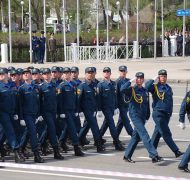Introduction to Samuel, Kings and Chronicles
Bible Commentary / Produced by TOW Project
The books of 1&2 Samuel, 1&2 Kings, and 1&2 Chronicles take a deep interest in work. Their predominant interest is in the work of kings, including political, military, economic, and religious aspects. Governing, in the form of “having dominion”, is one of the tasks God gave human beings at the very beginning (Genesis 1:28), and leadership, or governance, issues take center stage in 1&2 Samuel, 1&2 Kings, and 1&2 Chronicles. How should the Israelites be governed, by whom, and for what purposes? When organizations are governed well, people thrive. When good governance is violated, everyone suffers.
The events in the books of Samuel, Kings and Chronicles are thoroughly intertwined. Because of this, we will discuss all six together, rather than subdividing book by book. To locate the discussion of a particular passage, use the table of contents and headings.
Kings are the focus, but they are not the only people we see at work in these books. First of all, the work of kings affects the work of many others, such as soldiers, builders, craftspeople, and priests, and the books of Samuel, Kings and Chronicles pay attention to how the kings’ work affects these other workers. Secondly, kings themselves have work other than ruling, of which parenting is of particular interest in these books. Finally, as histories of Israel, these books take an interest in the people as a whole, and in many cases this means recounting the work of people not connected to the work of kingship.
Following the lead of the books themselves, we will pay greatest attention to the leadership and governance tasks of the kings of Israel, while also exploring the many other kinds of workers depicted. Included among these are soldiers and commanders, judges and civic leaders (often called “elders”), parents, shepherds, farmers, cooks and bakers, perfumers, vineyard keepers, musicians and artists, inventors, entrepreneurs, diplomats (both formal and informal), protestors or activists, political advisers, artisans and craftspeople, architects, supervisors, stonemasons, bricklayers, metal workers, carpenters, armorers, well-keepers, oil dealers, healers, slave girls, messengers, lumberjacks, and accountants. Prophets and priests are also included, although in keeping with the Theology of Work Project’s focus on non-religious work, we will limit ourselves to their role in work outside the religious sphere. They actually play a significant role in political, military, and economic affairs, as we shall see.
Virtually every kind of worker today is either represented in the books of Samuel, Kings and Chronicles or can find practical applications to their work in them. Generally speaking, we will discover how good governance and leadership apply to our work, rather than finding instructions about how to do our particular jobs—unless governance or leadership is our job.
The Historical Background of Samuel, Kings, and Chronicles
Back to Table of Contents Back to Table of ContentsThe overarching interest of the books is the work of the king as Israel becomes a monarchy. They begin at a time when the twelve tribes of Israel had long been violating the rules, ethics, and virtues of leadership that God laid out for them, which can be found in the books of Genesis through Deuteronomy. After almost 200 years of increasingly bad governance by a succession of “judges” (temporary leaders), Israel is in shambles. Samuel, Kings, and Chronicles narrate God’s intervention in Israel’s governance as his people move from a failing tribal confederation to a promising monarchy, which declines into failure as succeeding generations of kings abandon God and his ways. Regrettably, the story ends with destruction of Israel as a nation, never to be restored during the biblical period. This may not seem like a promising backdrop for a study of governance, but God’s guidance is always in evidence in the narrative, whether people choose to follow it or not. Reading the story thousands of years later, we can learn both from their success and their failures.
The books’ fundamental theological position is that if the king is faithful to God, the nation thrives economically, socially and militarily. If the king is faithless, national catastrophe ensues. So the history of God's people is told primarily through the actions of top governmental leaders, to use modern terms. Yet governance is needed in every sort of community or institution, whether political, civic, business, non-profit, academic, or anything else. The lessons of the books apply to governance in all sectors of society today. These books offer a rich study of leadership, demonstrating how the livelihood of many depends on what leaders do and say.
Scholars believe that, originally, each pair of books (1&2 Samuel, 1&2 Kings, 1&2 Chronicles) was a single entity split between two scrolls. The scrolls of Samuel and Kings form an integrated political history of the Israelite monarchies. Chronicles tells the same history as Kings, but with a focus on the priestly or worship aspects of Hebrew history. We will follow the narrative as in three acts: (1) From Tribal Confederation to Monarchy, (2) Monarchy's Golden Age, (3) From Failed Monarchies to Exile.





